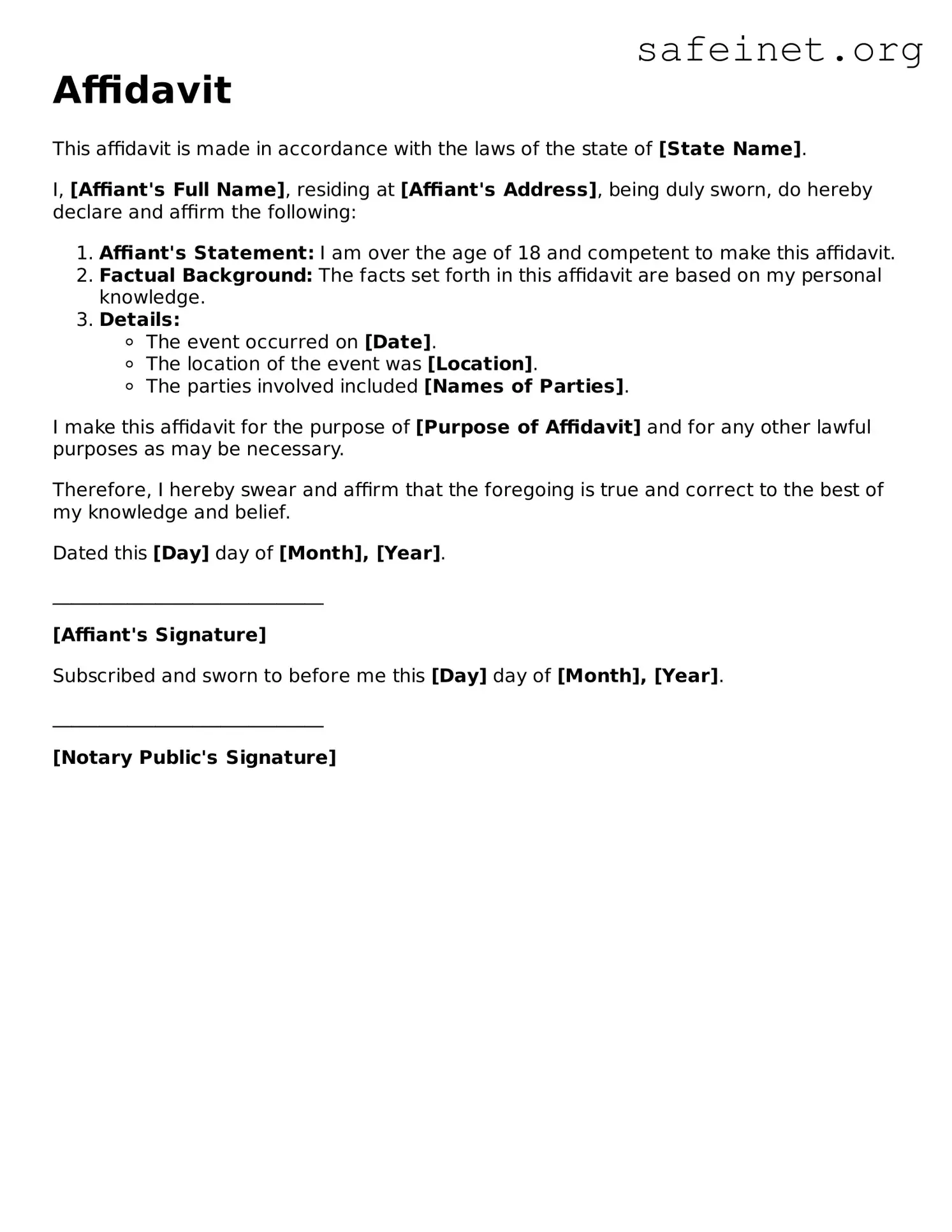An Affidavit is a sworn statement made voluntarily by an individual, often used in legal proceedings. One document that shares similarities with an Affidavit is the Declaration. Like an Affidavit, a Declaration serves to present factual information, but it typically does not require an individual to swear an oath before a notary. Declarations can be used in various contexts, such as in court filings or in support of other legal documents. Both documents aim to convey truthful information and can be used to support a case.
Another document akin to an Affidavit is the Notarized Statement. This type of statement involves an individual providing facts, similar to an Affidavit, but it is specifically notarized to verify the identity of the signer and their understanding of the statement's content. While both serve as a method to express verified information, the notarized statement is often used in contexts where legal verification is essential, such as property transactions or agreements.
A Sworn Statement is also comparable to an Affidavit. This document, which is affirmed to be true under penalty of perjury, acts similarly to an Affidavit in that it provides factual information intended for legal purposes. The primary difference lies in the procedural aspects; sworn statements may not always require a notary public, depending on the jurisdiction or the specific process in place. Nevertheless, both enable individuals to present their accounts in a legally recognized format.
Next, a Power of Attorney (POA) bears resemblance to an Affidavit in terms of affixing authority to another individual to act on behalf of someone else. While it’s focused more on granting rights rather than asserting facts, both documents often require a signature and are sometimes notarized for validation. The key difference is that the POA focuses on decision-making rather than swearing to the truth of a statement.
Similar in function to an Affidavit is a Statement of Facts. This document outlines specific facts in straightforward language, typically used in administrative or legal proceedings. While a Statement of Facts might not require an oath, it aims to communicate factual data clearly and accurately, akin to what is found in an Affidavit. Both can support legal arguments and can be pivotal in a case.
An Affidavit also resembles an Oath, though the key difference is that an Oath is a solemn promise to tell the truth, rather than a documented statement. An Oath is often part of the process of creating an Affidavit, as the person making the Affidavit must typically swear to its truthfulness. However, oaths alone do not provide the comprehensive narrative found in an Affidavit.
Lastly, witness statements are similar in nature to an Affidavit. When a person provides a witness statement, they narrate events or observations under the belief that their account will be taken as testamentary evidence in a legal situation. Like Affidavits, witness statements must be accurate and truthful, as they may significantly influence the outcome of a legal matter. However, witness statements do not require notarization and may arise informally, unlike Affidavits.
